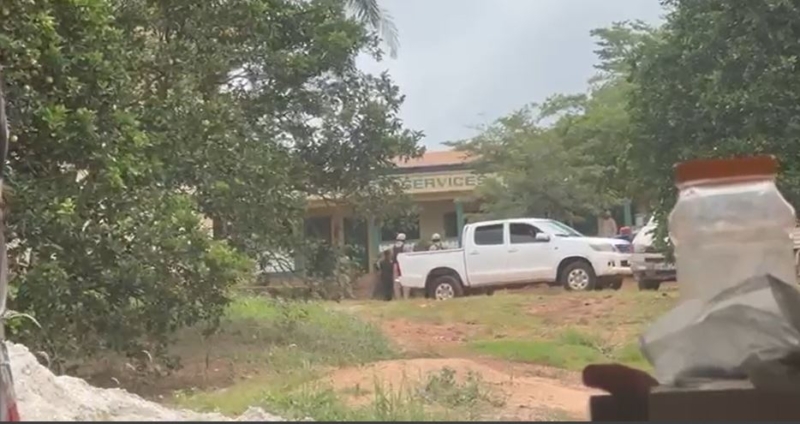In a dramatic and unexplained development, over 15 heavily armed individuals, believed to be operatives from the National Security Secretariat, stormed and shut down the Forestry Commission’s regional office in the Ashanti Region early Monday morning.
The unexpected operation brought official work to a halt, leaving staff and eyewitnesses stunned. According to multiple accounts from on-site personnel, the operatives arrived without prior notice and claimed they were acting on “orders from above.” Staff members were instructed to hand over the office keys, effectively halting all administrative and field operations.
As of publication time, no official statement had been issued by either the Ministry of Lands and Natural Resources or the National Security Secretariat, deepening public speculation over the motive behind the operation.
Mounting Pressure on Forestry Officials
The incident occurs amid growing threats and pressure faced by Forestry Commission personnel for their intensified crackdown on illegal mining — particularly within the Oda River Forest Reserve, a critical ecological zone in the Ashanti Region.
The reserve serves as the watershed for the Oda River, a major water source supporting communities such as Obuasi and its environs. Over the years, the area has become a major target for illegal small-scale mining, commonly known as galamsey.
Sources within the Commission, who spoke on condition of anonymity, linked the closure to ongoing tensions over recent arrests of illegal miners and the Commission's sustained anti-galamsey operations in protected forest zones.
A Dangerous Mandate
The Forestry Commission, in collaboration with the Forest Services Division’s Rapid Response Units (RRUs), has been at the forefront of Ghana’s anti-galamsey campaign. Their operations often involve armed confrontations with illegal miners, some of whom are reported to be heavily armed and well-financed.
Reports from late 2024 and early 2025 highlighted multiple instances of violence against forestry personnel, including shootings and machete attacks during raids in reserves like the Offin Shelterbelt and Obosomkese.
Despite these risks, field teams have continued to dismantle illegal mining sites, arrest offenders, and protect the country’s dwindling forest resources — actions that may have triggered powerful backlash from those with vested interests in illegal mining operations.
No Clarity, Rising Concerns
The lack of official communication surrounding Monday’s action has sparked alarm among civil society groups and environmental advocates, who fear the move may be politically motivated or linked to vested interests in illegal mining.
“This development is worrying,” one senior forest officer remarked off the record. “Our work already puts us at risk every day. Now we are being undermined from within the very system that should be protecting us.”
Calls are mounting for the government to provide clarity on the incident and reaffirm its commitment to forest conservation and the protection of frontline environmental officers.
As of this report, operations at the Ashanti Regional Forestry Commission office remain suspended.













